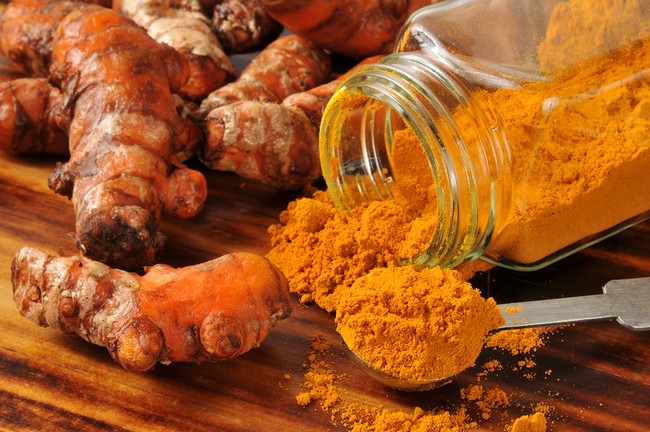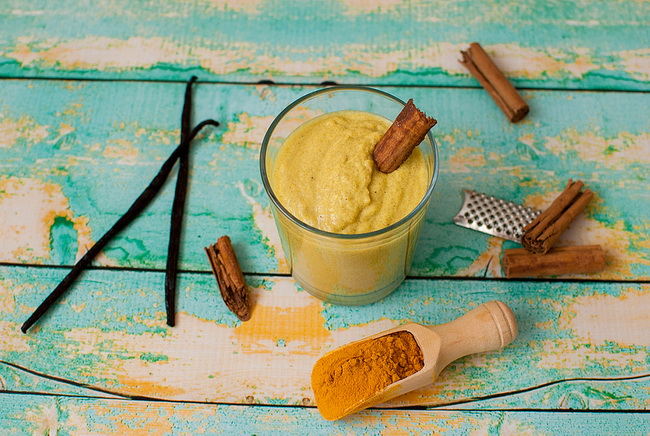- Make It Yourself Lavender Heart-Shaped Bath Bombs!
- 20 Things You Never Knew About “Down There”
- 12 Best Foods For Those Suffering From Arthritis Pain
- 12 Personal Hygiene Mistakes Almost Everyone Makes (Mom Never Told You About #4!)
- 15 Medicinal Plants And Herbs From The Cherokee People
- 12 Mind-Blowing Benefits Of Drinking Coconut Water During Pregnancy
- 12 Outstanding Winter Foods That Won’t Fatten You Up Like A Christmas Turkey
The Link Between This One Powerful Spice And Weight Loss

Photo credit: bigstock.com
Weight management is an ongoing problem for many people. A healthy weight loss program will only produce sustaining results when the right diet and exercise program is practiced diligently. Even then, there are other factors that come into play, including sleep, exposure to sunlight, and even genetics that can make the difference for many people. There have been studies regarding obese subjects who consumed only 800 calories a day and walked on a treadmill for several hours each day, but failed to lose more than one or two pounds after several weeks.
Although these people are extreme examples, most find they have a difficult time either losing weight or keeping it off. Scientists at Tufts University wanted to see if consumption of turmeric could aid in weight loss efforts. Their study involved mice on a high fat diet who were given small amounts of curcumin (the active ingredient in turmeric) over a 12-week period. When compared with the control group of mice, the mice given turmeric gained far less weight and body fat over the 12-week study period. The turmeric-eating mice also had less blood vessel growth in their fat tissue, lower blood sugar levels, lower levels of fat in the liver, as well as lower triglyceride and cholesterol levels.
Although this is just one study, it does suggest that consuming turmeric can be a beneficial means of enhancing weight loss efforts and/or maintaining a healthy weight.
Although exactly how turmeric works is still unclear, there are a few theories. One centers on the fact that turmeric is one of the most powerful means of reducing inflammation, swelling, and inflammation in the body. Inflammation and the irritation it causes are one of the leading factors not only behind obesity, but almost every other chronic disease known to man. Another thought is that turmeric is well known for having powerful antioxidants. Antioxidants are vital for protecting our cells and DNA from oxidative damage. Antioxidants also inhibit the body from accumulating fat.
Continue to Page 2

Photo credit: bigstock.com
Turmeric has been around for at least one thousand years, and it has been used in both Ancient Chinese medicine and Ayurvedic medicine for just as long. Turmeric is a relative of ginger and has been used as a healing medicine in the East, as well as being a tasty addition to many food dishes.
If you would like to try a turmeric-enhanced diet, you will need to consume much more than what is typically found in many curry sauces or other food dishes. Although you can continue to enjoy these food dishes and curry sauces, to see results you will need to start consuming turmeric supplements or fresh turmeric daily. If you are not a fan of the flavor of turmeric, supplements are the best way for you to get your turmeric on!
SEE ALSO: Want a Healthy Sweet Drink? Check Out This Medicinal Turmeric Tea Recipe!
You will need to consume between two and three grams of turmeric every day. The curcumin in turmeric encourages your body to block fat while improving liver function, which not only means better detox ability, but it also can help your body use the nutrients you are consuming, instead of storing them as fat.
How does turmeric block your body’s ability to store fat? First, it inhibits the division of fat cells. When you have few fat cells, you have less body fat overall. Secondly, turmeric suppresses the ability of your body to form new blood vessels so that it cannot form fat tissue because it cannot feed it.
Some people believe that the amount of fat you have is determined when you are born. However, some studies have shown that although you might be born with a predetermined number of fat cells, those cells can divide and grow. Eating turmeric can inhibit the division of fat cells, making it harder for you to gain weight.
In addition to inhibiting the storage of fat and the division of fat cells, turmeric also has numerous other health benefits.
Continue to Page 3

Photo credit: bigstock.com
Please note that those with liver problems will want to speak to their doctor first about consuming turmeric. Curcumin will stimulate the liver to produce more bile, which is how it lowers cholesterol levels, but for those with liver problems, it might overburden this organ. Speak with your doctor before consuming large amounts of turmeric.
Of course this does not mean that you can eat anything and everything in unlimited quantities and you will not gain weight, but in conjunction with a healthy diet and a moderate exercise program, turmeric can go a long ways toward reducing fat, especially belly fat.
What else can turmeric do for you?
- Fight Alzheimer’s – Since numerous animal trials have shown that curcumin can inhibit or even reverse Alzheimer’s disease by breaking up the amyloid plaques in the brain, The Alzheimer’s Disease Research Center at the University of California has started clinical human trials.
- Reduce the risk of stroke and heart attack – This is because turmeric lowers cholesterol levels. With lower levels of cholesterol, the blood flow is improved.
- Anti-cancer benefits – With at least 30 animal studies showing that turmeric has anti-tumor compounds, a recent study from New Jersey found that it can also help prevent prostate and colon cancer.
- Fight inflammatory disease – Turmeric’s powerful anti-inflammatory compounds means it can help stop with inflammatory diseases such as MS, inflammatory bowel disease, arthritis, and inflammation of the eye.
- Anti-viral – Early studies show that turmeric has powerful anti-viral compounds that can reduce the severity of viral infections such as the common cold or the flu.
- Helps with digestion – Curcumin has been shown to relive many common indigestion problems including bloating, gas, and indigestion.
- Helps diabetics – Animal studies show that turmeric can improve insulin activity and glucose control. If you decide to add turmeric to your diet, speak to your doctor first, and monitor your blood sugar levels closely to avoid low blood sugar levels.
Always consult with your doctor before starting any herbal program if you have any health conditions or if you are taking any prescription medications to avoid drug interactions. Although turmeric appears to have no side effects, it is better to be safe than sorry.
References:
































